Law enforcement agencies in California and New York have reported a major drop in iPhone robberies over the first five months of 2014, a shift they attribute to Apple's new Activation Lock feature released as part of iOS 7 last fall.
Activation Lock's crime drops impress cops
New York's Attorney General Eric Schneiderman announced police data revealing a that iPhone robberies in San Francisco dropped by more than a third (38 percent), while New York City has seen robberies and 'grand larcenies from a person' involving an iPhone drop by 19 and 29 percent. In London, Apple-targeted thefts were down by 24 percent.
Schneiderman noted that "preliminary statistics following Apple's adoption of Activation Lock— the first kill switch commercially available in the United States— appear to validate the kill switch as an effective tool to deter smartphone crime."
While thefts of Apple products were down compared to rates prior to the release of Activation Lock, "thefts of other popular mobile devices increased," with New York reporting that "both robberies and grand larcenies from a person involving a Samsung smartphone, another popular device, increased by over 40 percent compared to the first five months of 2013," the group's report noted, adding "other cities experienced the same trend."
A report by the Wall Street Journal said Schneiderman "cited anecdotal information from the New York Police Department that thieves find iPhones less attractive because of the kill switch."
SOS initiative targets smartphone thefts
Last summer, Schneiderman joined San Francisco's District Attorney George Gascón in launching an "Secure our Smartphones," an effort to fight back against "an epidemic of smartphone theft and related violence." The group has since gained support from London Mayor Boris Johnson and "a coalition of more than 100 elected leaders, attorneys general, consumer advocates, and top law enforcement officials from major cities."
In view of the alarming fact that "in 2013, a mobile device played a role in roughly half of all robberies in New York City, San Francisco, and London," the group began advocating that "wireless carriers, mobile device manufacturers and software developers" support the development of "kill switch" technology that could make stolen phones worthless to thieves, However, they found little support in the industry, with trade groups arguing against kill switch legislation as being "infeasible and unwise."
The SOS initiative reported its first milestone reached September 18, 2013, when "Apple unveiled 'Activation Lock,' a kill switch available on all iPhones running the newly released iOS 7 operating system. Prior to its introduction, critics claimed that an effective kill switch was beyond reach. Apple showed not only that a kill switch was possible, but made it available on the most popular mobile device in the market."
Police in New York immediately began advocating that iPhone users upgrade to iOS 7 for the security feature.
In May 2014, Minnesota became the first state to mandate a kill switch on all new smartphones sold by July 2015.
Samsung follows Apple with its own "Reactivation Lock"
In April, Samsung "rolled out its own kill switch, dubbed 'Reactivation Lock,' for certain new Verizon and U.S. Cellular 'Galaxy' devices," the report noted.
"Assuming Samsung makes the kill switch broadly available across all of its devices, and arms the application by default (rather than require a user to 'opt in' to use the application), Samsung thefts would be expected to experience a similar decline," the group addd.
However, Samsung says its Reactivation Lock "activates a special flag set in a secured memory storage area of the device," indicating that specially designed new hardware is required to activate the feature (which differs from the previous "LoJack" solution Samsung previously offered).
Reactivation Lock currently only works on Samsung's latest Galaxy Note 3 and Galaxy S5 high end models, which are only a part of the company's premium phone segment that historically makes up about a third of the volume of smartphones Samsung sells.
Unlike iOS 7, which Apple supports on devices as old as 2010's iPhone 4, Samsung does not offer Reactivation Lock features to its previous generations of Galaxy Note and Galaxy S buyers. Additionally, while iOS 7 doesn't force users to use Activation Lock, Apple makes setting up the service as easy option that's integrated into the user's iCloud account setup. Samsung buries the feature as a setting users must find and configure on their own.
Google, Microsoft offer to match last year's iOS 7 features with an update next year
To avoid losing all smartphone sales to iPhones in Minnesota and other states who impose kill switch laws, Google and Microsoft have also agreed to add an Activation Lock-like feature to "the next version of the Android operating system" and "the next release of its Windows Phone operating system," respectively.
However, while Apple updated virtually its entire installed base of iPhone users within just a few months to iOS 7, Google has only managed to push its Android 4.4 KitKat to less than a fifth of its installed base in the same time frame. Microsoft also has a poor track record in delivering updates to its installed base of previous smartphone buyers.
Google's own Nexus and Motorola-branded phones do not offer a built in kill switch mechanism similar to Apple's iOS 7 Activation Lock. However, Google isn't even offering Android 4.4 KitKat upgrades to its owners of modern devices like the Galaxy Nexus (which went on sale after iPhone 4S in late 2011), making it unlikely that a future version of Android with an Activation Lock feature will benefit many existing Android users.
 Daniel Eran Dilger
Daniel Eran Dilger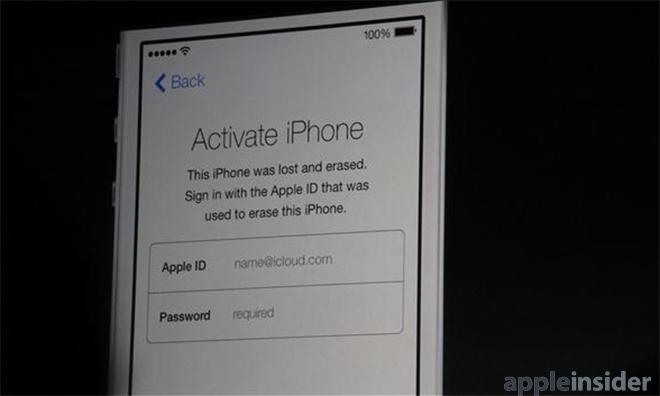
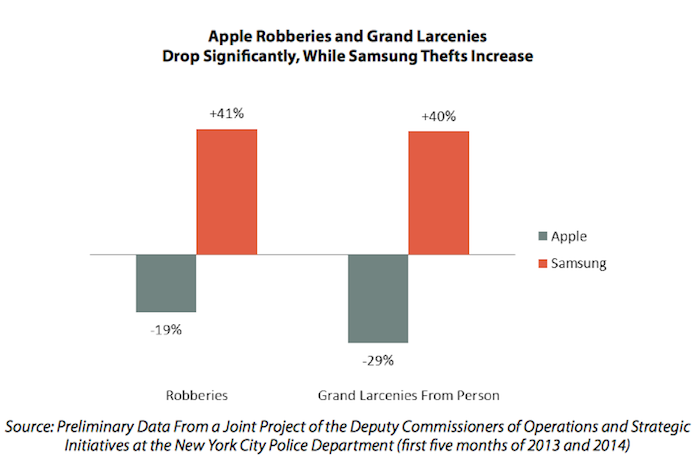
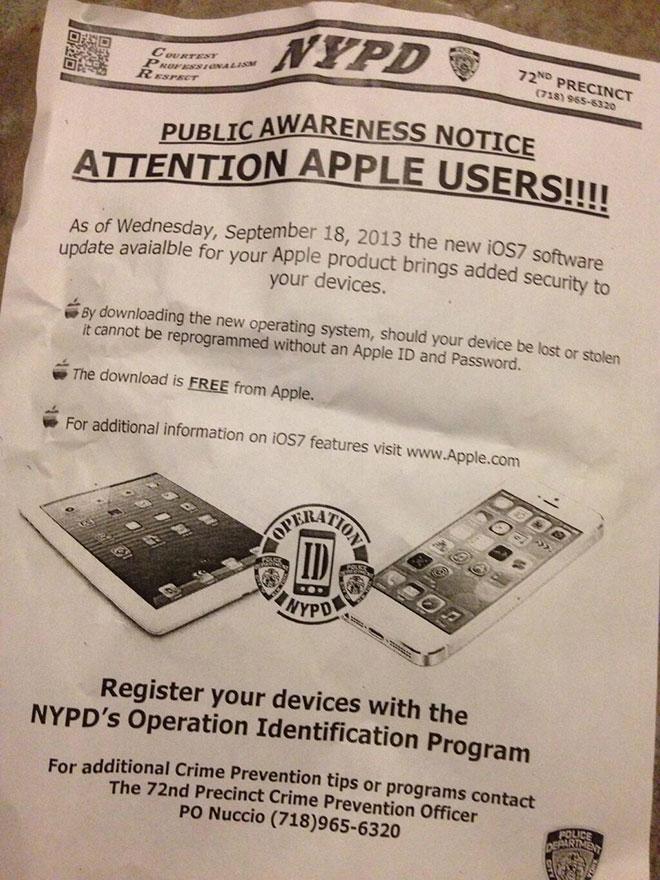
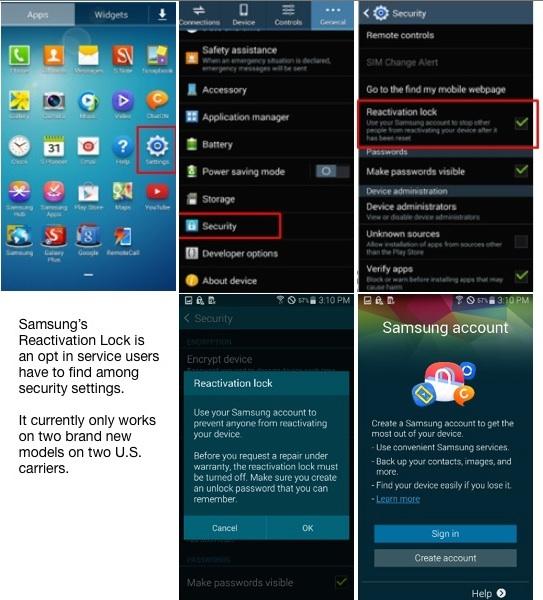







-m.jpg)






 William Gallagher
William Gallagher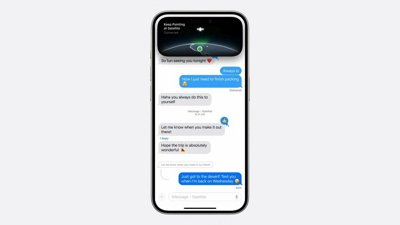
 Malcolm Owen
Malcolm Owen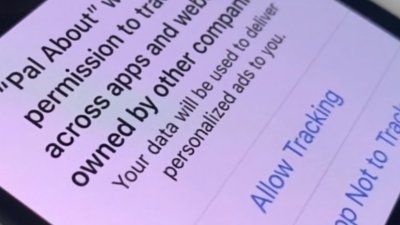

 Brian Patterson
Brian Patterson
 Charles Martin
Charles Martin












34 Comments
Hilarious to see some of the stupid comments on other forums. Some claiming it has nothing to do with iOS 7 and everything to do with carriers now blocking IMEI numbers. Others say it's smartphone thefts that are down while completely ignoring the fact that devices were broken down by type (which is how they were able to show a reduction in iPhone thefts while also showing an increase in Samsung thefts).
I still remember people saying this would do nothing because most iPhones are sold for parts. Now where are they hiding?
Hilarious to see some of the stupid comments on other forums. Some claiming it has nothing to do with iOS 7 and everything to do with carriers now blocking IMEI numbers. Others say it's smartphone thefts that are down while completely ignoring the fact that devices were broken down by type (which is how they were able to show a reduction in iPhone thefts while also showing an increase in Samsung thefts).
I still remember people saying this would do nothing because most iPhones are sold for parts. Now where are they hiding?
You will never be able to have a rational discussion with an iHater. Why even try?
Anyone else notice that the NYPD memo misspelled "available"? the pictures and format is great, but there's a typo right in the middle of the announcement. Someone failed to find the spell check.
Maybe it's because nobody wants an iPhone anymore. They rather steal androids. Because they are so much better :-)
Apple Iphone share of stolen phone market drops!